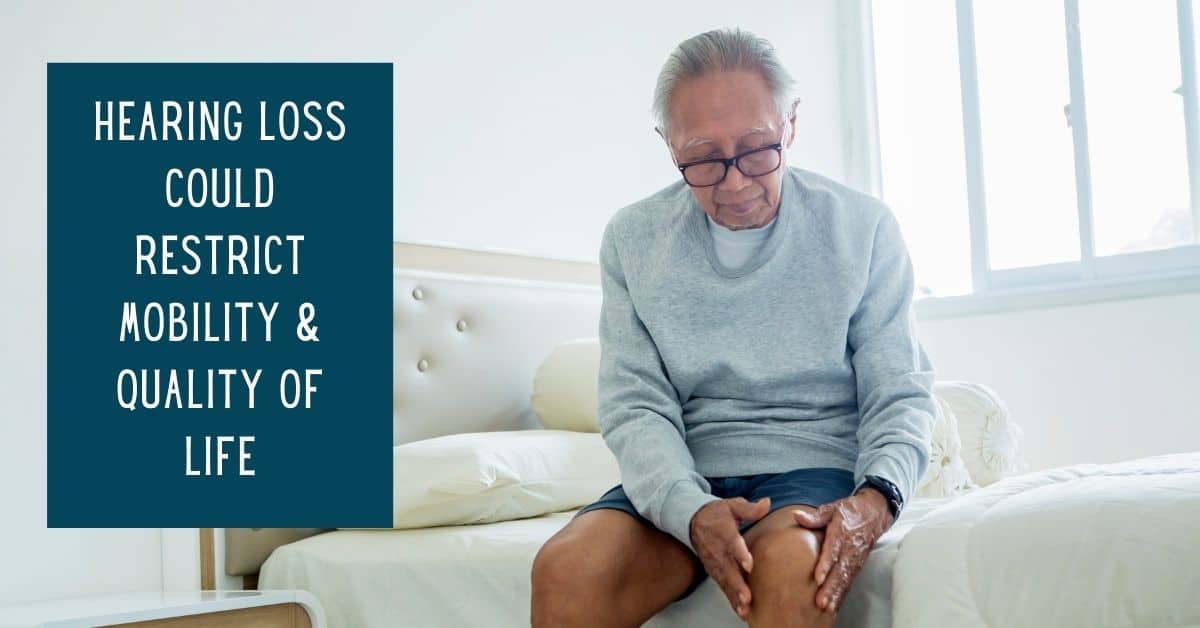
A recent study out of Finland has demonstrated that older adults with hearing loss are more likely to have limited mobility than their counterparts who do not have hearing loss. How did the researchers come up with this finding, and what are the implications for everyday life? Let’s take a moment to get inside the study in order to understand more specifically what they discovered as well as what it might mean for your life and for those you love.
The Study
Researchers at the Universities of Jyväskylä and Tampere in Finland conducted an observation of 848 people between the ages of 75 and 90, comparing the habits of those who had hearing loss and those who did not. The study monitored these participants for two years, taking note of the places they went within the local area.
With this information, the researchers were able to confirm the different habits and mobility patterns between the two groups of people and make some comparative assessments. For the purpose of this study, two key pieces of information were clear to them. Those who had hearing loss moved less within their local areas than those who did not have hearing loss, and they were also twice as likely to limit their movement to nearby areas.
The Implications
What does this finding mean for those who do and do not have hearing loss? If older adults with hearing loss are less likely to move within their local areas and are less likely to move beyond nearby areas, then researchers expected these results to have a strong negative effect on the overall quality of life. Other studies have shown that those who are less mobile tend to report a lower quality of life, as well. Mobility is related to feelings of independence, social connections, and the ability to meet one’s basic needs. Looking from the other direction, those who have limited mobility can sometimes isolate themselves and feel socially disconnected. This limited mobility can have an effect on physical health, as well. When we are moving less, our bodies are likely getting less exercise, and related heart and muscular conditions can develop. Obesity can occur in those who are not using enough of their calories to travel through the world, whether or not this mobility includes “exercise” as such. Simply moving from the home to another venue and mobilizing within that other locale can help the joints, muscles, heart, and lungs get the physical activity they need to continue functioning at their best.
Differences in Quality of Life
The researchers did notice some differences in reported quality of life measures related to mobility. For some people, limited mobility was a powerful determinant of low quality of life. These people tended to have many social contacts and to use communication as an essential feature of their daily lives. On the other hand, limited mobility had less of an effect for others.
Those who were more inclined toward domestic tasks were less affected by the perceived restrictions on mobility. How would hearing loss be related to limited mobility?
The researchers were not able to demonstrate a causal connection, but one possibility was the fear of awkwardness, misunderstanding, and even danger associated with hearing loss in public and social settings. If a new social encounter required hearing ability, some people might be consciously or unconsciously avoiding that situation altogether.
When these situations were avoided due to hearing loss, new habits can be formed, including expectations about what is and is not possible. When self-limiting beliefs enter the minds of these people with hearing loss, the psychological effects can be compounded.
Seeking Treatment for Hearing Loss
If you or someone you love has hearing loss, there is no better time than the present to schedule a hearing exam. Once a diagnosis has been completed, we can prescribe a line of treatment options, usually including hearing aids, that can restore confidence and desire for mobility once again. That independent and adventuresome spirit is crucial to quality of life and feelings of wellbeing in the golden years, so these added benefits should be even more reason to pursue treatment for hearing loss as soon as possible!
